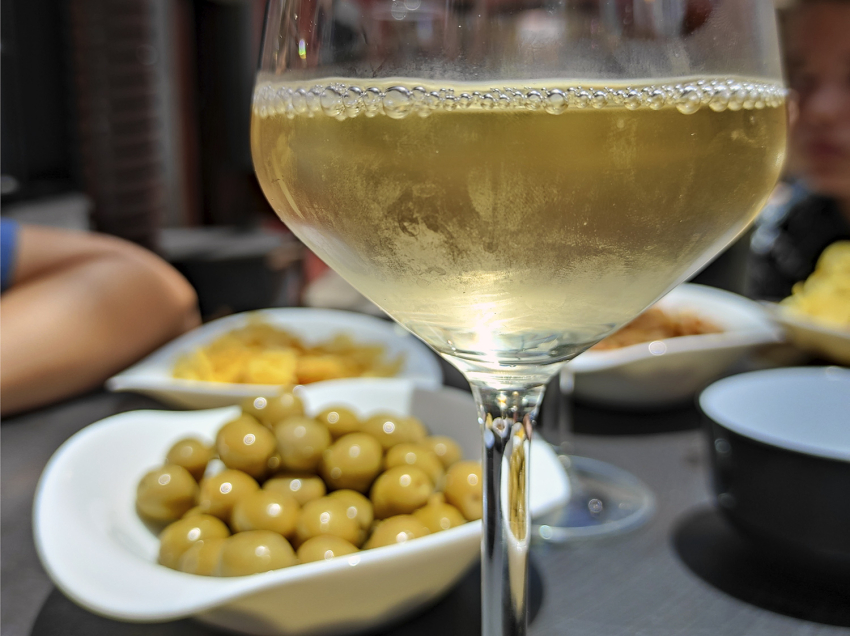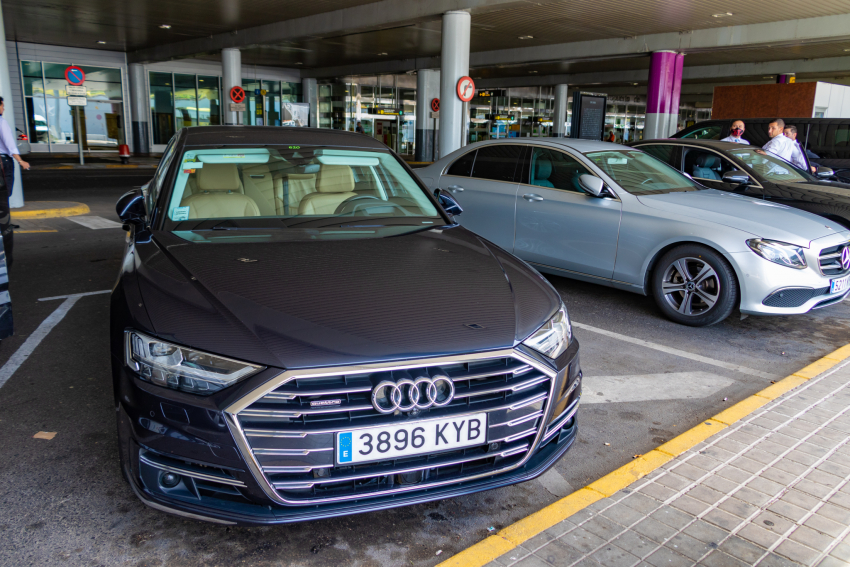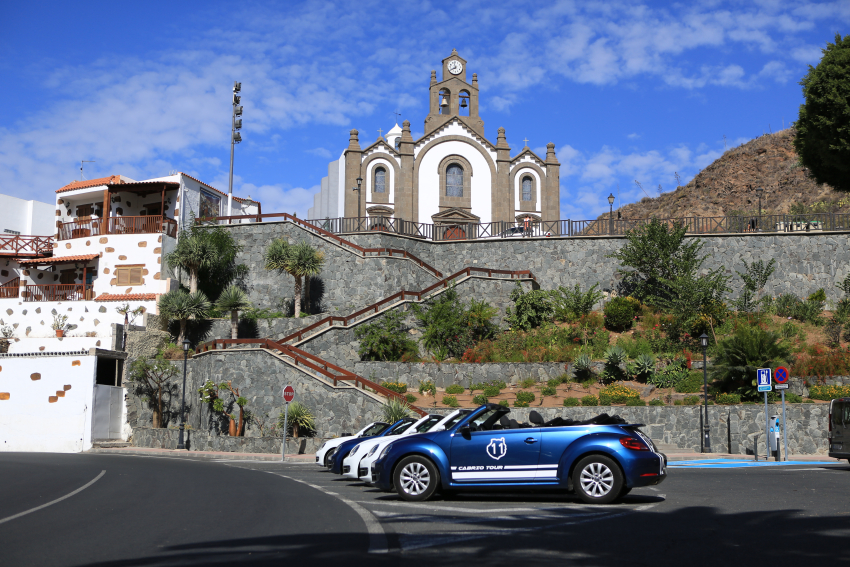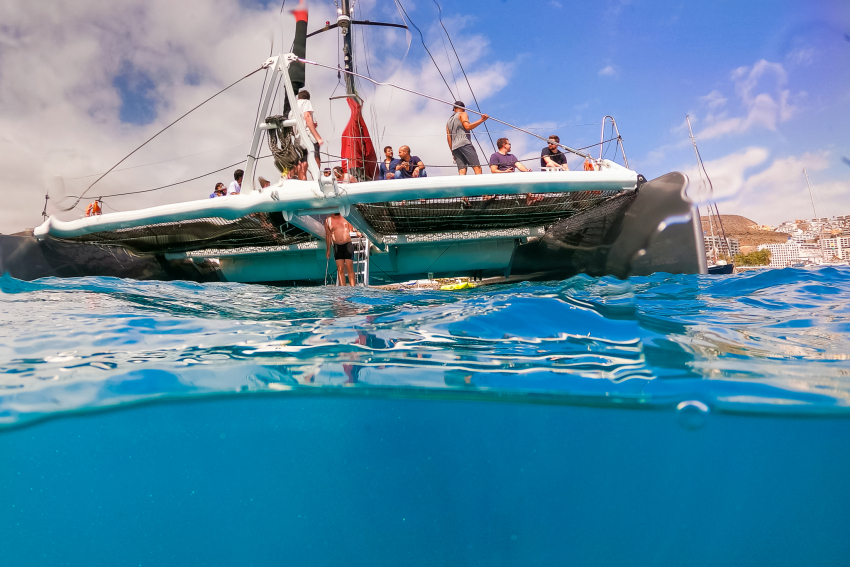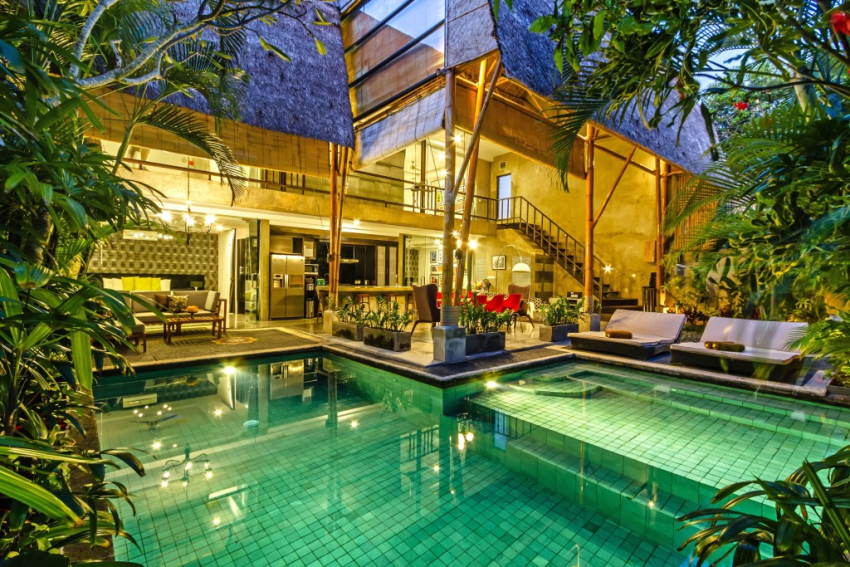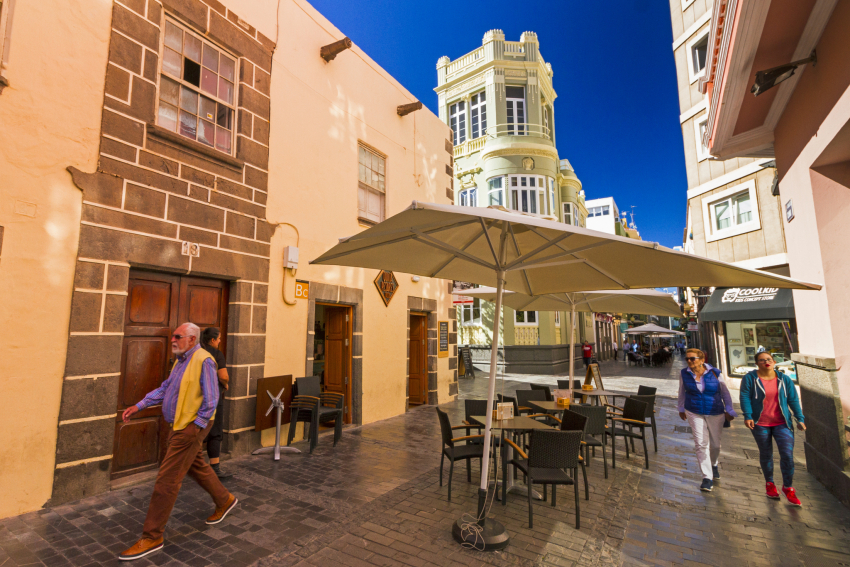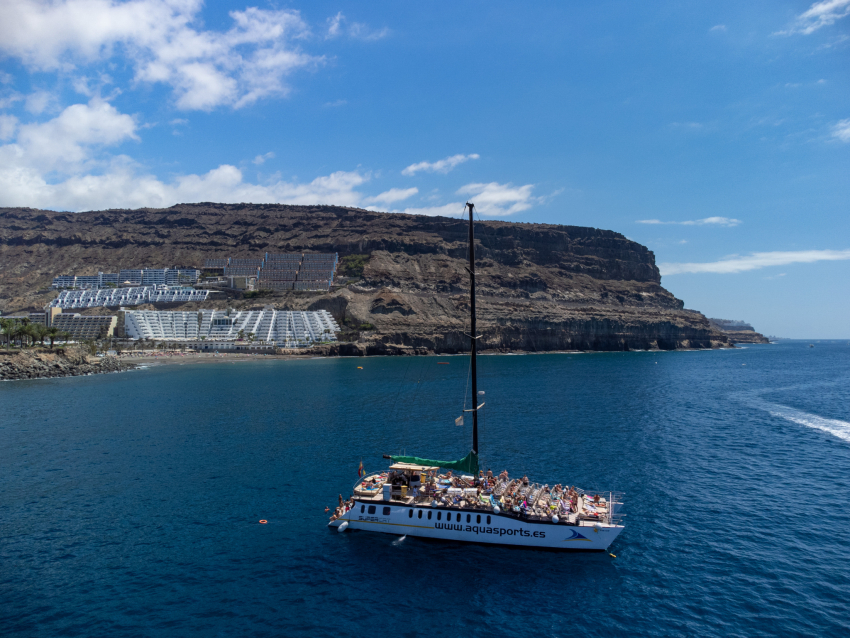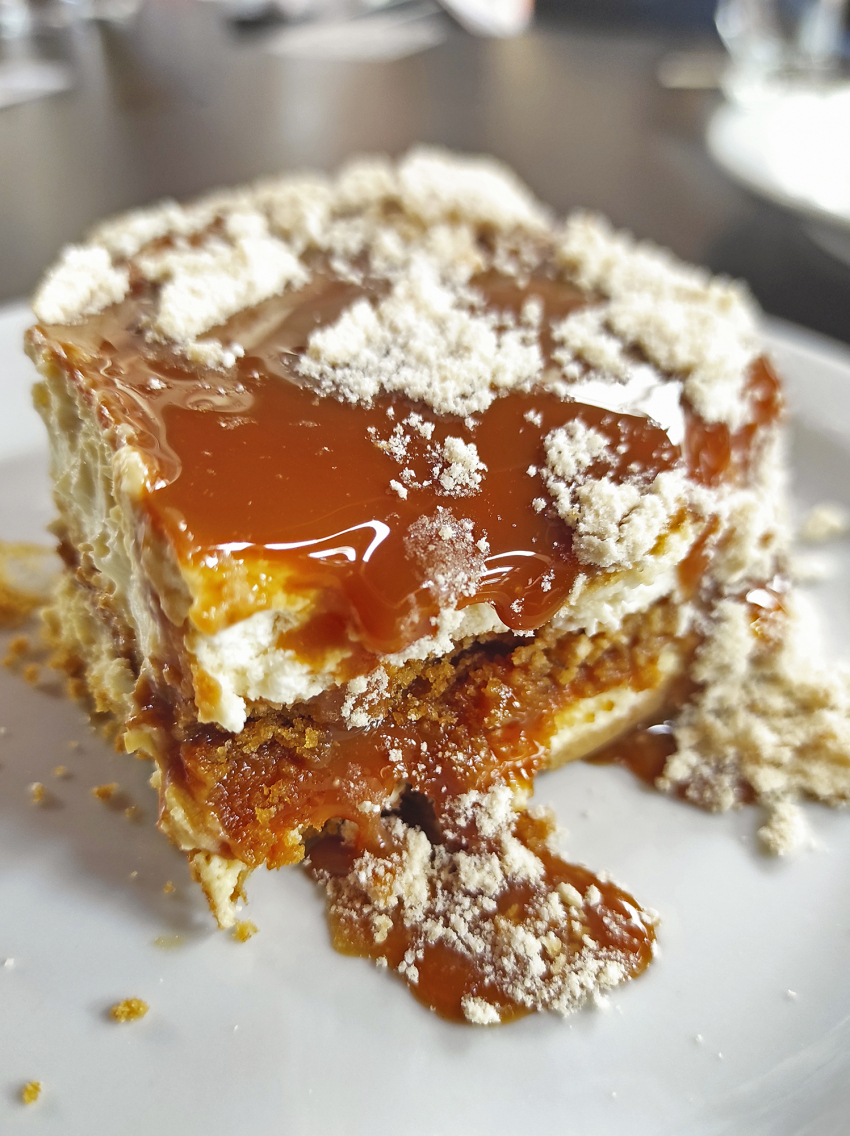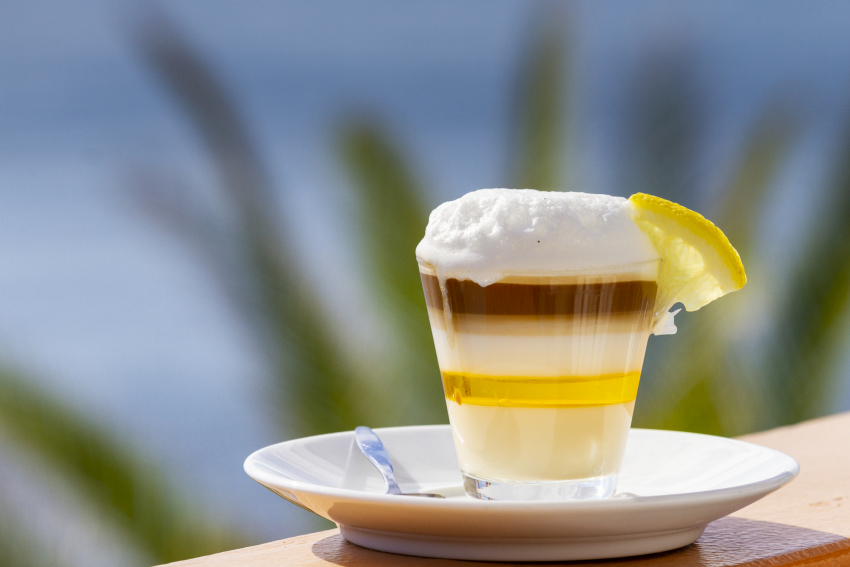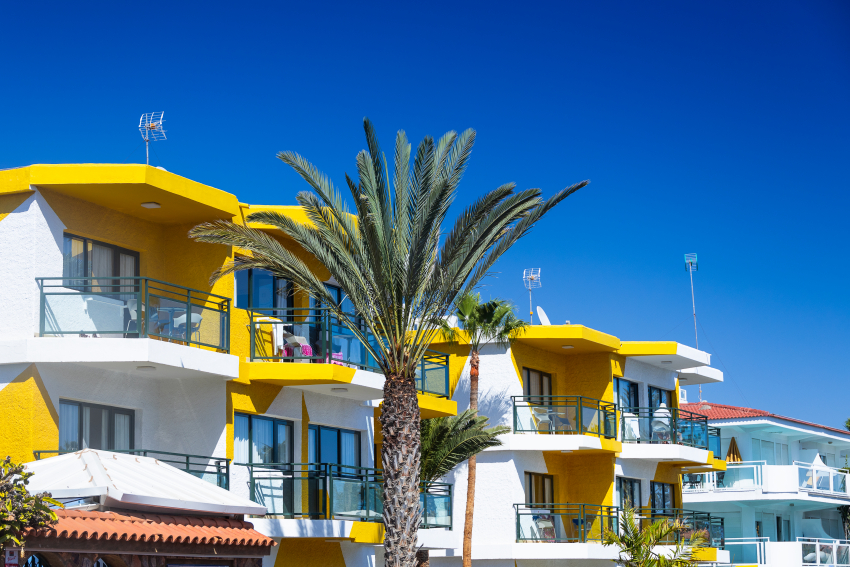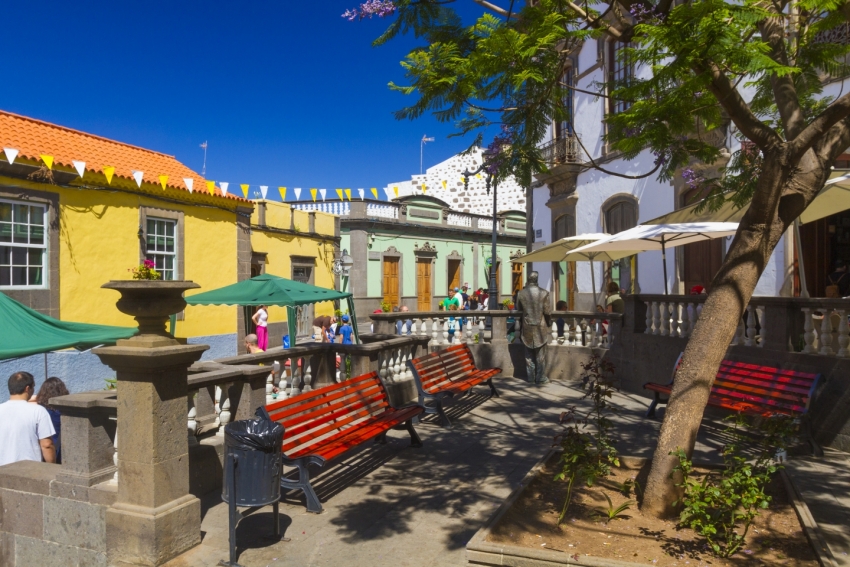Alex Bramwell
How To Spot Fake Canary Islands Wine
Canary Islands wine producers have recently warned about a marketing trick used to sell imported wine as local produce by using Canarian label designs and texts.
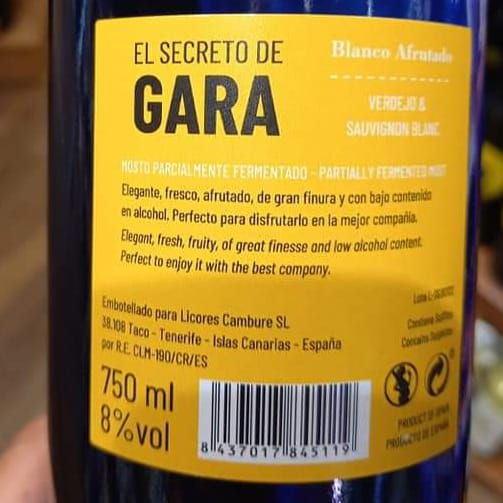 Bottled in the Canary Islands
Bottled in the Canary Islands
A wine that is made from Spanish grapes and imported in bulk can be bottled in the Canary Islands and labelled as "Embotellado en Canarias". With a convincing Canary Islands design on the label, this winer is then sold as if it is local produce in supermarkets and restaurants. The imported wine often uses grape varieties that are also grown in the Canary Islands, such as Malvasia and Albillo, as an added distraction.
Because production costs are so much lower in Spain's vast vineyards, these wines either undercut the local wine producers, or are sold at the same price as authentic Canary Islands wines.
Genuine Canary Islands wine is easy to recognise
This trick depends on people assuming that a bottle that looks like a Canary Islands wine and says bottled in the Canary Islands on the label is a Canary Islands wine.
Fortunately, all genuine Canary Islands wine does have a Denominación de Origen Protejida (Protected Designation of Origin) label system that is easy to spot and guarantees provenance. It's a similar system to the one used to label genuine Champagne or Greek feta cheese.
Real Canary Islands wine have a DO section on the rear label. Gran Canaria, Lanzarote, La Palma, La Gomera, and El Hierro each have an island-wine DO, while Tenerife has five; D.O. Tacoronte-Acentejo, D.O. Valle de La Orotava, D.O. Ycoden-Daute-Isora, D.O. Valle de Güimar, and D.O. Abona. Fuerteventura doesnt have a DO as it only has one wine producer (that we know of).
There is also an Islands Canarias or Canary Wine DO that covers wines made using grapes from more than one island, or from areas of Tenerife that are outside the designated DO zones.
You can see several of these label sections in the image gallery of this article.
Genuine Canary Islands wine, made from grapes grown in the Canary Islands, have one of these DO sections on their rear label. The only exceptions are really local wines made for personal consumption and sometimes sold in local bars and Guachinches.
Protecting Canary Islands wine growers and the countryside
Vineyards and Canary Islands wines have become an important source of income for rural communities and supporting them by drinking local is a great way to keep rural areas vibrant.
There is also no problem if you choose to drink Spanish wine that is imported and sold in the Canary Islands. Spanish wine is excellent and much cheaper than local wine because the vineyards in Spain are huge and mechanised. All wine in the Canary Islands, on the other hand, comes from small vineyards that hand-pick their grapes. Local wine great stuff but you won't find a bottle of Canary Islands wine for less than 10 euros. Decent Spanish Rioja crianza reds, or Albariño whites, start at around six euros.
The problem here is when cheaper imported wine is sold sneakily as local produce and undercuts the local wineries and the local economy.
The practice is dishonest and destructive and we hope this article helps you to avoid being tricked. If you want to try Canary Islands wine, read our Gran Canaria Info wine section, and check the labels.
How To Choose A Legal Gran Canaria Airport Transfer
Gran Canaria's hotels have to be licensed and offer a quality level of service as well as having insurance and complying with fire regulations. The same goes for the boats that take people out to watch dolphins, the companies offering jeep safaris, and even the holiday let apartments.
However, not everybody in Gran Canaria follows the rules. For example, there is a significant industry running illegal and uninsured transfers between Gran Canaria airport and the island's resorts. These cars, driven by locals and foreign-residents, are just private vehicles and the drivers are unregulated and uninsured. They don't pay tax and there is no way to hold them responsible if something goes wrong.
At Gran Canaria Info we believe that all people and all companies offering services to tourists should legal and above board.
So, how do you know that your airport transfer service is legal and registered with the Gran Canaria authorities?
Using legal Gran Canaria airport transfers
It is quite easy to know if your airport transfer service is operating in a legal way because all registered transfers have the following...
A blue license plate: Taxis and other public service vehicles in Gran Canaria all have blue plates.
A VTC sticker in the window: This stands for Vehículo de Transporte con Conductor, the official designation for licensed transfer drivers ans chauffeurs.
An SP sticker on the car: This indicates that the car offer a Servicio Publico or public service and is therefore allowed to pick up and transfer members of the public.
Parked in the transport zone: Official airport transfer vehicles don't park in the public car park of the airport. Instead they have their own parking zone right by the arrivals gates at the airport (next to the taxis and package tour buses). Your transfer driver therefore should not have to pay a parking fee before leaving the aiport.
How to spot an unlicensed transfer service
Unlicensed drivers get away with offerring their service because they claim that they are just members of the public picking up a friend. They are allowed to stand at arrivals with a sign (just like any member of the public can).
However, they also have to park their car in the public car park and will walk you there with your luggage, stopping to pay the parking fee at the meter. A licensed transfer driver does not need to do this because they have their own parking zone right by arrivals.
Some unlicensed drivers don't even wait at the arrival gate because the official drivers recognise them and get annoyed. Instead they have to stand further away (often by the Spar supermarket or the car rental desks).
When an unlicensed driver drops you at the airport they will not want to be paid in a public area because this proves that they are charging rather than "transporting a friend" for free.
An unlicensed car will not have a blue license plate, or a SP or VTC sticker, and will often look like a private car (because it is a private car).
What's the problem with unlicensed airport transfers?
Some people use unlicensed cars because they are the cheapest option and don't realise that they are unlicensed.
There are several problems with unlicensed services. The most obvious is that they are uninsured so if something goes wrong or there is an accident, you are not protected. The price that unlicensed drivers offer is only low because they cut corners (hopefully not literally). You have no way of even knowing if your unlicensed driver has a Spanish driving license, insurance and a good driving record. Licensed drivers are vetted regularly and must be fully insured and licensed to work.
Another problem is that unlicensed transfers undermine the legitimate transfer drivers and businesses in Gran Canaria. Local drivers make a living from transfers and offer a legal, regulated service with minimum standards. Every time an unlicensed service undercuts them, it is effectively stealing from local people and the island economy.
We believe that everybody in Gran Canaria deserves better!
Gran Canaria Airport Transfer Services
To find out more about the Gran Canaria airport transfer, see our Gran Canaria airport transfer article which explains the three different models; man/woman from pub with car, online transfer websites, and local transfer services.
Or you can book a legitimate Gran Canaria airport transfer at a great price right here. Our service uses local drivers and supprts the island economy because all the money you spend stays in Gran Canaria.
Alex Says: Using our service also helps the Gran Canaria Info team to keep providing quality local information here and in our Facebook Group
Tour Gran Canaria In Style In A Convertible VW Beetle
Explore the beautiful southern highlands of Gran Canaria in this convertible Volkwagen Beetle tour led by a professional and multilingual local guide.
The itinerary takes you along Gran Canaria's most spectacular roads up from the coast to the pretty village of Santa Lucia, then on past the palm trees and into the pine forests arund San Bartolome. There are plenty of stop to take in the view and make sure that the Instagram feed is well nourished. Then you head slowly back down via Fataga and through the Valley of 1000 palms with several more interesting and photogenic stops along the way.
The tour includes pickup in Gran Canaria's main resort areas, plus a picnic lunch. Five people maximum per car. Class B driving license required on the day, driver must be over 21. Start times are flexible and there is more than one tour per day. Ask us for details via WhatsApp using our Concierge service.
This is a stylish and comfortable day out for the whole family (minimum age 4) with the wind in your hair and the sunshine on your skin and you'll see the highlights of south Gran Canaria's beautiful mountains from the comfort and security of a great cabriolet car.
Gran Canaria Bookings: Expert Advice, Easy Bookings, Great Excursions

At Gran Canaria Info we have been helping people who visit Gran Canaria to get the most out of their holidays since 1998. We've explored pretty much the entire island and done almost every excursion that exists.
Over 300,000 people follow our Gran Canaria Info Facebook Page and are in our Facebook Group and get useful information about the island every day. This website gets thousands of visit every day.
We also offer a complete Gran Canaria booking service for everyone coming on holiday to Gran Canaria, and we do it in a convenient way via WhatsApp.
You can think of our Gran Canaria booking service like a concierge in your pocket. Just tell us what you want and our local experts, all here in Gran Canaria, will help you choose and book the perfect excursion, buggy tour, or boat trip. We can even deliver a rental car at arrivals in the airport, or to your door once you are settled. And we offer a reliable airport transfer service with registered drivers.
Booking excursions with Gran Canaria Info
If you know exactly what excursion you want to book, just let us know with this fast Whatsapp form. We'll get back to you and confirm the booking right away.
If you want more information about a particular excursion, or need a bit of help choosing between the different optons (which boat trip is best for dolphins, for example), just let is know and you can chat with our Gran Canaria experts via WhatsApp without any obligation to book.
Our concierge booking service is also ideal for large group bookings and for private boat charters that need to be arranged in advance.
To use the service, just get in touch via this easy WhatsApp form.
Car Rental with Gran Canaria Info
We don't even pretend to compete with the low-cost local operators such as Auitoreisen, PlusCar and Cicar so if you want a cheap rental from the airport, use them. Most people arrive at the airport, join a short queue and pick up their car with no problems at all. Occassionally there may be longer queues because there is a lack of budget cars on Gran Canaria: The leasing companies sold off stock during Covid and have struggled to buy replacements now that demand is back.
Lex Says: Don't use the cheapest option on car rental websites because you will fall into this extra charge trap.
The Gran Canaria Info car rental service isn't the cheapest but it is good value and absolutely no hassle. We offer fully comprehensive insurance as standard, airport delivery at the arrival gate, delivery to your door and 24-hour support. We also offer a wide range of quality cars including convertibles, SUVs, luxury vehicles, road bikes, and automatics. If the car exists on Gran Canaria, we can organise a rental for you. Just let us know what you are looking for and the dates and our concierge service will be in touch straight away.
To rent a car with our booking concierge, just fill in this WhatsApp form and we'll be in touch right away.
Airport transfers with Gran Canaria Info
If you just want to walk out of arrivals and straight into your transfer car with no worries about queueing, waiting or looking for the bus-stop, the Gran Canaria Info airport transfer service is for you.
Your driver, fully licensed and insured, will be waiting for you at arrivals with your name on a sign. Then you walk to the designated transfer parking area right by the arrivals gate and off you go to your accommodation.
An airport transfer means that you start your holiday in style from the moment you walk out of ther airport and transfer prices are often equivalent of even cheaper than a public taxi (or even the bus for a large group).
You can book out airport transfer service right here, right now and not have to think about it again until you arrive at the airport.
Renting A Property In Gran Canaria? Read This To Avoid Scams
Rental scams are a growing problem all around the world and especially in places like Gran Canaria where there is always a shortage of properties.
Here’s our guide to the most common scams and how to spot them, plus some tips about how to find a safe rental in Gran Canaria.
You are most vulnerable to scammers if you are looking for property in Gran Canaria for a medium period of time; longer than a month but less than a year. There are less properties rented out like this and demand is high.
Short stays are safer because you book them on Airbnb or Booking.com and see the landlord’s reviews. Long-term rentals tend to be handled by estate agents, or at least come with a negotiated contract and are therefore less vulnerable to fraud. For residential rentals, and yto an idea of prices and standards,start at Idealista.com.
The fake property scam
This is common in the high end rental market because there is a big lack of property with outside space, especially in Las Palmas de Gran Canaria city.
Scammers create an advert on a popular rental portal, or post pictures in Facebook Groups aimed at remote workers and digital nomads.They then take a reservation deposit, take down the advert and disappear.
The key to spotting this scam is to pay close attention to the photos of the property. There should be plenty of them and they should all have the same furniture and fixtures. You can often tell that the outdoor photos from fake listings are not taken in Gran Canaria, or that the property is not typical of the island (Balinese villa, ultra-modern high rise, etc). There are no villas or houses with gardens near the beach in Las Palmas.
Never believe landlords who give you excuses about not having any photos because they are redecorating, etc.
You can also Google search the images to see if they appear in multiple adverts from different places, or appear on property portals (scammers get their photos from estate agent listings).
Multiple deposit scam
We’ve had several reports of this happening in Las Palmas recently and it is also well known in the resorts.
The owner of a genuine property takes several deposits from people who all believe they have reserved it. Then they arrive to find that the property is already occupied and the owner refuses to return the deposit.
To avoid this scam, always ask for a receipt when leaving a deposit and always pay by bank transfer rather than in cash. If at all possible, avoid leaving a deposit until you have seen a property.
The unpleasant flatmate
There is at least one guy in Las Palmas pulling this trick. He rents out a room, with a deposit and rent in advance, in his apartment. As soon as his guests move in he starts to act erratically so that they move out to get away from him and he keeps their money.
Avoid this scam by asking for the contact details of previous tenants.
How to avoid scammers
- Only pay a deposit after you have received a reservation receipt with the contact details and identity number of the landlord
- There is no such thing as a bargain rental property in popular areas of Gran Canaria; you get what you pay for and underpriced properties are cheap for a reason
- Make sure you have the exact address of the property and compare it to the photos using Google Maps
- Ask for the contact details of previous tenants
- Check all photos carefully for coherence and location
- Use landlords who have their properties listed on property portals such as Airbnb and Booking.com and have plenty of reviews
- Come out in advance, stay in an Airbnb and look for property in person once you arrive
- Join local Facebook Groups and ask members if you have any suspicions about a property or a contact
- Be wary of landlords who try and rush you into making a deposit before you have a chance to do any checks
- Never pay more than one month’s deposit in advance
- Trust your instincts if something seems wrong with an advert or odd about a landlord
- Join local groups such as Digital Nomads Accommodation GC and Gran Canaria Accommodation. For more general Gran Canaria Information join Gran Canaria Info and Living In Gran Canaria.
Help I got scammed
We advise you to go to the police with all the information you have. Head to the nearest Policia Local station with all documentary evidence you have.
You can also get a lawyer involved although the cost adds up and you may spend as much as you get back.
However, even the threat of a lawyer or the police is often enough to make a dishonest landlord return your money.
Calle Cano: The Best of Old And New Las Palmas
When people come to Las Palmas, they either head to Las Canteras beach, or they wander the cobbles of Old Town Vegueta and Triana districts. Then they do some shopping, often along Calle mayor de Triana, recently voted the best outdoor shopping area in Spain.
However, most people miss the little streets that run off Triana’s high street and this is a real shame. While they lack the big names of the main shopping drag, they are full of small independent shops and charismatic local bars and restaurants.
It’s worth just wandering around these side streets and dipping in to the shops as they sell far more original goods than the big names on the main drag.
Calle Cano: Where old and new Las Palmas merge seamlessly
This pedestrian street is my favourite in the whole historical area of Las Palmas because of how old and new blend together.
If you start at the south end of Calle Cano, the architecture is medieval with squat old buildings with stone doorways and heavy-set doors. Note the traditional wooden balconies on the top floors.
There’s a restaurant right on the corner setting the tone with excellent Spanish ham and traditional food served at outdoor tables.
Casa Museo Perez Galdós: A museum dedicated to a Spanish wordsmith
As you walk north along the street you come to the Casa Museo Perez Galdós set in the splendid old building where Benito Perez Galdós, one of Spain’s most famous novelists and Spain’s leading 19th Century literary figure, was born in 1843.
You don’t have to read his detailed accounts of middle-class Spanish life to appreciate the museum. It’s a beautiful house with internal courtyards, high, wooden ceilings and lots of fascinating information about the author and the period he described so well with his pen.
Art deco and local flourishes along Calle Cano
Further north along Calle Cano and the medieval gives way to the early twentieth century with art deco wrought iron balconies replacing the more traditional wood. The shops here are local in character with hairdressers and even a nursery mixed in amongst the boutiques.
You’re never more than a few metres from a restaurant with outdoor tables shaded by big parasols. One popular place is Mr Kale, a thoroughly modern spot that caters to vegetarians and vegans. It serves healthy smoothies and snacks nd is opposite a boutique selling shoes that cost more than most people’s entire holiday.
The Librería del Cabildo: The best Canary Islands book shop
Or, stay on Calle Cano for the Libreria del Cabildo, a spectacular bookshop with the best collection of Canary Islands books I’ve ever seen in one place. Drop in between 09.00 ands 13.00, or 16.30 to 20.00 on weekdays, and have a browse as you’re sure to find something to read on the beach.
More restaurants, local Spanish food
Calle Cano ends at the Plaza de San Bernardo in a flourish of restaurants serving modern Spanish and traditional Canarian food.
The other side it turns into Calle Viera y Clavijo and the facades slowly become more recent until you reach the beginning of modern Las Palmas. There’s a lovely sushi hole-in-the-wall, a Bang and Olufsen store, and plenty of clothes and shoe shops to keep you occupied.
Viera y Clavijo is lined with Jacaranda trees so if you in Las Palmas in early summer the street is carpeted in electric mauve flowers.
At any point you can drop down one of the cobbled side streets and come out on the much busier and commercial Calle Mayor de Triana for a hit of contemporary high street fashion. Or, head a block up the hill to Calle Benito Perez Galdos for what is Las Palmas’ most hipsterish street with its home decoration boutiques, tattoo parlours, and a cluster of vegan and upmarket restaurants.
Keep walking south along Benito Perez Galdós and Calle General Bravo and you get back to the pretty Plaza del Cairasco with its tall palm trees and outdoor cafes. From here you are just a couple of minutes walk away from the Cathedral and the museums and galleries of Old Town Vegueta.
Article published originally on the excellent Hello Canary Islands website.
Which Gran Canaria Boat Trip Is Best For Me?
A Gran Canaria boat trip is a must for many people visiting the island but there are lots of options, and so many people selling tickets for them, that it's tricky to know which one is the right one for you.
After all, one person's banging party boat is another's noisy nightmare on the water. So, yo make sure you have the perfect day, here is the Gran Canaria Info guide to choosing the best Gran Canaria boat trip for you. Allthe boats mentioned here do pickups from all the main Gran Canaria resorts.
What sort of Gran Canaria boat trip are you after?
A good boat trip is a great Gran Canaria day out but the wrong boat can be an expensive headache. So, to make sure you choose the right trip, first decude exactly what you want out of your day on the water?
The most popular day trips are the large charater catamarans like the Sagitarius Cat, the Afrikat, or the Volcanic Party boat. These are big boats with lots of atmosphere and a fun atmosphere. Great if you want to socialise and party out on the water.
For a more tranquil day out, choose on of the smaller catamarans or speedboats such as the Exclusive Boat or the Blue M Yacht.
If what you realy want to see is dolphins swimming free in the ocean, you have a couple of good options. The two hour dolphin-watching trip on the Supercat has a great track record of finding the dolphins but is a big, busy boat that isn't for everyone. For a quieter and more intimate experience, use a smaller boat like the Exclusive Dolphin Search Charter, or the Blue M Yacht Luxury Dolphin Search Charter.
Ask a Gran Canaria expert before you book
At Gran Canaria Info we want everyone to have a good time here on the island. So, we have a personal booking service that lets you ask our local experts which boat trip is best for you. It's all done by Whatsapp so you don't have to spend any money on calls, or worry about data. All you do is fill in a super-simple enquiry form telling us what you want to do and then our local experts will be in touch to help you choose the right boat. Our local experts have tried all the boat trips we sell and know everything about them.
Booking the perfect boatv trip via Gran Canaria Info really couldn't be any easier and it guarantees that you have the best possible time on board.
The Best Polvito Uruguayo In Gran Canaria
Gran Canaria's unique dessert, the Polvito Uruguayo, is on most dessert menus in Las Palmas and is now even served in some resort restaurants.
The history of the polvito uruguayo
Despite the name, it was invented in Las Palmas at the El Novillo Precoz restaurant by the Uruguayan owners. The restaurant is still there and still one of the best meat restaurants in Gran Canaria. If you stay in Las Palmas you really should go there and let the experienced waiters tell you what meat is best for you (they always know).
The polvito at El Novillo is a very light pudding made from layers of whipped cream, dulce de leche, biscuit crumbs, ground almond and crushed meringue. It is deliberately light because who wants a big stodgy pudding after eating a good steak?
From its origins on Calle Olof Palme the polvito has now become the one of the Gran Canaria dessert trinity along with flan de la casa and mousse de gofio.
The best polvito in Gran Canaria (so far)
To find the best polvito, head from one Las Palmas classic to another; the Bodega Extremeña right by the beach on Calle Franchy Roca. This small and resolutely traditional restaurant serves up some of the best Spanish food in Las Palmas from quality ham and cheese to tasty tortillas.
Try the range of slow-cooked meats served with mashed potato so tasty that you can eat all on its own that is the highlight of the menu. And of course, the polvito!
At Bodega Extremeña it is deeper and more substantial than the original and skips the almonds. However, it is still light enough to eat after a heavy dose of meat and mash.
If you try it and know of a better one, please let us know where to go...
The Barraquito : A Historic Canary Islands Coffee
The delicious Barraquito coffee was invented in Santa Cruz de Tenerife at some point in the early 20th Century but like all good legends, its exact origins are nebulous.
Some say a man nicknamed Barraco breakfasted in the bar Imperial and always asked for a carajillo (espresso with booze in it) with a difference. Followers of this origin story spell the name with a capital B. Others are convinced that a waiter at the nearby Los Paragüitas bar invented the Barraquito on a slow day. The recipe is also attributed to a Mr Manolo Grijalbo who created it for his bohemian clients at a long forgotten bar over the road from the Santa Cruz casino.
Meanwhile, some in north Tenerife add extra Licor 43, call the barraquito a zaperoco, and insist that it originated in Puerto de La Cruz and has been hijacked by the capital city. The response from Santa Cruz is always, "pfff, they just say that for the tourists".
The one thing that everyone in Tenerife agrees on is that the Barraquito is completely different from the cafe Asiático from Cartagena in southern Spain. The Asiático is made from exactly the same ingredients in exactly the same way but is, of course, a completely different drink. The fact that Licor 43 is made in Cartagena is neither here nor there: There is no firm evidence about which of the two appeared first as both seem to date to the 1930s or 1940s.
Anyway, enough of this historical nonsense.
How to make a Barraquito coffee
The Barraquito is made from five ingredients layered up like a 1980s cocktail.
It is served in a glass, like a standard Canary Islands cortado or cortado largo. These days it also comes in a wide array of rather silly vessels ranging from mini beer steins to champagne flutes.
Be as camp as you like with the glass, but stick to the original recipe to get the right flavour at the end:
The bottom layer is a shot of condensed milk.
The second a half shot layer of Licor 43, a sweet Spanish liqueur.
The third a shot of piping hot espresso coffee.
The fourth a shot of hot milk.
Top up with milk foam to create the fifth layer.
Dust the top with cinnamon and add a strip of zest from an unwaxed lemon.
The idea is that you mix all the layers together and drink your Barraquito like a normal coffee.
Instagram rather than instant coffee
In our seminal guide about How to order coffee like a local in Gran Canaria we don't even mention the Barraquito because, somewhat inexplicably, it wasn't a thing here until recently. Lovers of sweet, layered coffee in Gran Canaria had to make do with the leche y leche, a measly two-layered effort made with condensed milk and milky coffee served with extra sugar on the side rather than cinnamon and lemon peel.
However, the Barraquito is now here to stay on menus at touristy bars and cafes all across the island. Even the locals are indulging along the Las Canteras beachfront in Las Palmas. It is the banana split of the 2020s and makes people ooh and aah and dream of Instagram fame.
The good thing about the Barraquito is that it is delicious as well as Grammable. The unlikely sounding combination of ingredients combine well and you get a lovely hit of rice-puddingy coffee sweetness.
Just remember to drink it hot as it gets a bit gloopy if you spend too long photographing it.
When you take your first sip don't forget to thank Barraco, or Mr Grijalbo, or that anonymousTenerife waiter, for coming up with the original recipe.
The Best Gran Canaria Weather Forecast
The single most common question we get in the Gran Canaria Info group is...
What is the weather going to be like during my holiday?
The answer is almost always the same: If you are going to south Gran Canaria's resorts, it is very likely to be sunny every day. Yes, even in the winter. Yes, even though your weather app says it is going to be cloudy. Yes, even in January. And in February, etc.
Obviously it does sometimes rain in Gran Canaria, even in the sun-baked south, and there are occassional cloudy days.
To check for these rare rain and clouds there is no point using generic weather apps because they use data that averages out the weather and temperature across Gran Canaria.
This means that the forecast for Puerto Rico and other resorts includes weather and temperatrure predictions for inland and highland areas that are cooler and cloudier.
So, instead of believing your current weather app use the Spanish weather service website called the AEMET. It's website has detailed and very accurate forecasts for individual resorts, town and even beaches.
Here's the forecast for the Mogán area including Puerto Rico.
The mobile website works very well in English although the app is only in Spanish at the moment.
Gran Canaria Info recommends:
- Default
- Title
- Date
- Random

